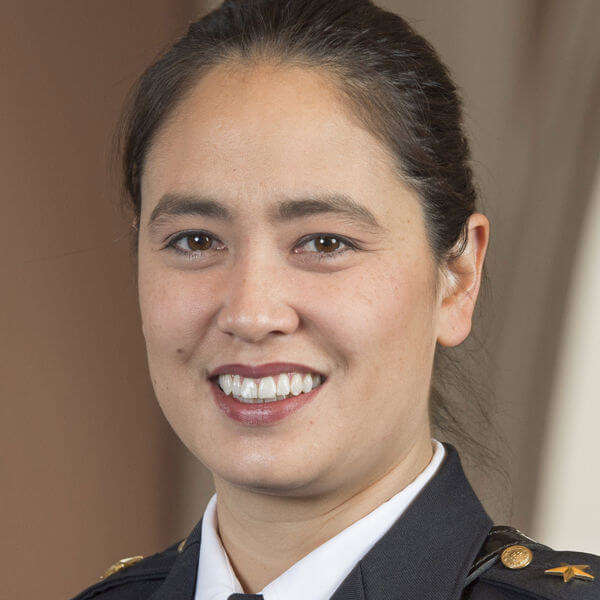Taking time to consider the other
February 14, 2020
“And when they hear other people's stories of their experience, a light bulb goes off, and oh, that's what it is…”
There was a family that my parents, or that my mom taught — a Japanese family. And it was very helpful for them to have my dad as a contact. And so I had seen that. And as a law enforcement leader and wanting to have a diverse police force, I definitely see how representation gives people, helps people recognize that that might be a path, like and if you don't see that, and if all the accounts that you hear are of police brutality or bias, then that impacts your thinking about the police and how you might interact with police and also about whether or not you want to, to even consider being a police officer, whether that's a possibility. So I definitely understand it. I don't know that I can talk about my own experience.
I think that certainly there is blame to go around, plenty of blame to go around but focusing on that doesn't I don't think, help. But I think sharing our, trying to be more diverse intentionally and sharing our experiences and having open conversations and listening to how people experience different interactions. And, really taking that to heart and having that help having that impact our behavior, it is really easy for me to think about that as a police officer because when I interact with someone as a police officer it always impacts them, even if it's just a passing conversation and I'm just saying hello. They experienced that in a much different way than they do when you're walking down the street and saying hello to the same person. And so being really thoughtful and intentional and learning from people's experiences and, and trying to help them understand where I'm coming from as well.
We get, so we get calls from people in the community about something that they think is, is suspicious and sometimes it is based on someone's appearance. Maybe it's race, maybe it's their clothes that that someone's wearing, like, we get calls that someone thinks something is suspicious, which we always want people to call. And then we have to go figure that out. And if it is just based on, on a bias that they called, now we are enacting that bias, even if it's not our own bias if we make contact with that person. So we try really hard to evaluate for ourselves before we engage. Like, we try to ask those questions. But we don't always get the answer like you try to ask what is suspicious, and we don't always get an answer. So that is something that I see that impacts people and that we don't want to impact people in that way. And so we have to be careful about that.
I have seen and had officers tell me when we've had the opportunity to engage with, with students or, or others who have shared their experiences and their perceptions. I've seen officers who didn't understand what white privilege was and didn't, just didn't make sense. They didn't understand it. And when they hear other people's stories of their experience, a light bulb goes off, and oh, that's what it is because they could never, they never experienced it that way. And so… And that changes them and helps them recognize where they have privilege and we all have…there are different kinds of privilege, right? Like they're, and so it helps them recognize that and, and be more mindful and thoughtful in their interactions and recognize how some people's life experiences have taught them something about either people of a different race or a different position or profession.
About the interviewer
Claire Rafford is a junior at the University of Notre Dame majoring in English and minoring in Journalism, Ethics and Democracy and Business-Economics.

Keri Kei Shibata
Keri Kei Shibata is the chief of police for the Notre Dame Police Department. She has worked for the University since 2004.